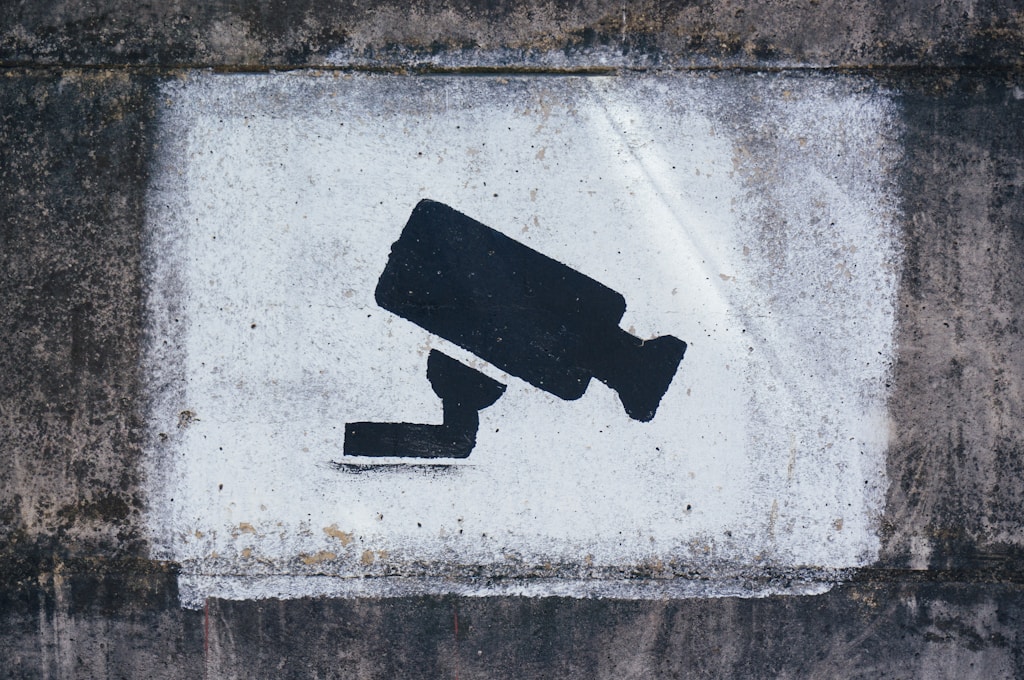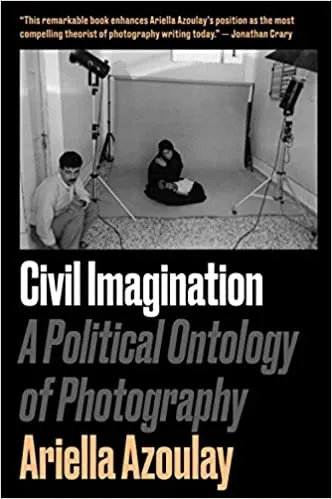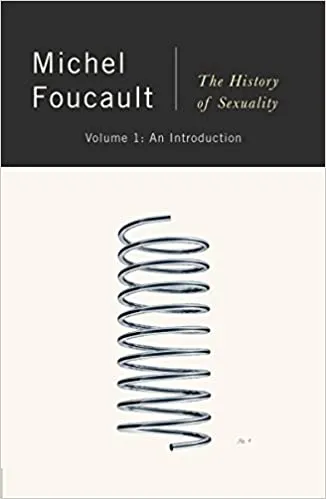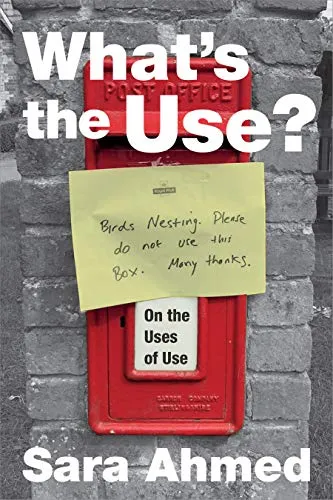A Media Studies Perspective on Canceling Books
Before I get started, I wanted to reiterate that I love books, reading, and the ability to discuss books and reading. My intention with this piece was the interrogate the terms of the argument about canceling books from the side of the canceled, the publisher, and the people who don’t have a prominent voice in the conversation because of systemic inequality.
I chose to assess this situation through a Media Studies lens because that’s what I have a degree in, but there are a lot of different ways to attack this problem. Hopefully, you can find a productive way to explore this issue and push for better representation.
Framing Arguments
In Ariella Azoulay’s book Civil Imagination: A Political Ontology of Photography, she interrogates what a photo tells us by what it leaves off to the side. When you focus in on a particular moment and sensationalize it, that moment pushes out the circumstances that led to the photograph. Her argument is complex and multi-faceted because she is addressing the mammoth issues of museum politics and the artistic gaze.
What I find useful from her argument in the context of book cancelations is the ease with which people evacuate the conditions of book publishing from the moment of cancelation. Azoulay argues the photograph is much more than the image it produces: “The overemphasis on the role of photographer and the lack of weight attributed to that of the spectator are derived from the prevailing but erroneous conceptualization of photography in terms of sealing off a certain instant framed by the photographer who observes it and who witnesses it from the outside, of freezing this instance or sealing it in death before sharing it with those who observe his or her testimony. But a photograph is never the testimony of the photographer alone, and the event of photography, unlike the photographed event, continues to exist despite all other considerations” (Azoulay 25). Using a lot of semiotic theory, Azoulay asks us to dig into the politics of photography past the moment of completion and presentation. What does the photograph want us to see, and what does it want us to forget about? Artistic photography and photojournalism are argumentative tools in the same fashion as an essay.
Publication Cancelation
When Missouri junior senator Josh Hawley’s book The Tyranny of Big Tech was pulled from publication by Simon & Schuster, the regular talking points about cancel culture and the danger of censoring voices started up again. In my corner of Twitter, everyone had a lot of fun with the phrase “positively Orwellian” in Senator Hawley’s response to the situation and his labeling of Simon & Schuster as a “woke mob.”
Without giving him too much credit as the singular writer, because I’m assuming his press team worked tirelessly on the response statement, the rhetorical dance here is quite strong in its hand-waving. Instead of addressing the mob of angry protestors who carried out mutiny in his name, Hawley calls the old media corporation a mob in an attempt to equate the gravity of Capitol riots and the cancelation of his book. He also states they are canceling his contract, when S&S said they were canceling publication — he doesn’t tell us how much money he’s been paid or how much money he’s set to still receive. Simon & Schuster chose to invoke the “morals” clause in their contract with Hawley, which is common in big publishing contracts.
In the bubble where I hang out on the Internet, Hawley was also mocked for misunderstanding George Orwell’s work and misreading the First Amendment in a way that served his interests better. Even if we accept the terms of his reading of the First Amendment, this part of his argument fell apart when his book was picked up by Regenery Publishing, a well-known conservative publishing outfit.
Many also noted that Simon & Schuster supplies distribution services for Regenery Publishing. This is also common for the Big Five publishers — printing and distributing books, and running your own warehouse, is quite expensive, so many smaller publishers work out deals with big publishers for their distribution. Simon & Schuster also provides distribution for Kaplan, Legendary Comics, and Viz Media.

“Positively Orwellian”
Orwell’s 1984 suffers from a kind of tug-of-war between conservative voices who point to widespread cancelation due to “thoughtcrime” and more left-leaning voices who might point to Orwell’s history fighting fascism. Back in 2005, this divide came up in John Dolan’s review of the British conservative author Christopher Hitchens’s book Why Orwell Matters — is Orwell a true socialist, or a conservative truther?
It depends on your vantage point. We can point to Orwell’s participating in fighting fascism in Spain, or we can point to his weirdly positive review of Mein Kampf. Even Isaac Asimov criticized Orwell’s misogynistic tendencies in his characterization of Julia in 1984. It’s also pretty easy to find anti-Irish sentiment in Orwell’s work, which easily supports an argument that he held British Imperialist views.
While it could be true that Hawley misused the term Orwellian from the vantage point of a leftist, he definitely used it correctly from the conservative side. 1984 has pretty moderate politics, so it’s easy to read in different ways. We hold a picture of Orwell based on our own perception of society, and interpret his books in a way that suits our reality.
I’m not trying to cancel Orwell. First of all, he wouldn’t care and neither would his estate or whoever receives royalties from his book sales. There are many other pieces that consider how we teach and reckon with authors who held chauvinistic beliefs and acted on them in their lifetime. At best, I think Orwell was a moderate who argued communism was all right in theory but terrible in practice because it was too easy to get all Stalinist or Leninist about it. I think 1984 is a great teaching tool in a historiographic sense because it gives context for the British and American response to forms of government they deemed to be anti-Enlightenment spreading around the world.
From my perspective, both 1984 and Animal Farm are anti-communist and anti-hedonist, and ultimately arrive at conclusions that reaffirm the importance of rampant individualism. However, I do not think this is the only interpretation or even an overall correct one. This is how I see the picture. My family calls me a flaming communist and you can, too.
Why Write a Book?
From a Media Studies perspective, the behavior of publishers that led up to this fracas is troubling as well. Every big publisher has a conservative imprint for Fox News hosts, self-described thought leaders, and former and current politicians to publish their books. The old guard of publishing (meaning most of the people in senior executive roles) believe they should publish a variety of voices.
But why write a book? It’s a product to sell. Why is a book different from any other commodity? It holds power, and who will publish your book proves how much power the knowledge you’re trying to convey in your book has. Books are still seen as important units of learning and knowledge collection — that’s why so many antiracist reading lists came out over the summer. A book published by a big publisher is seen as having a robust argument and valuable knowledge to contribute to your brain. The big publishers are valuable and the publishers confer value onto the authors they choose. Accumulating capital through power over knowledge is just as important to publishers as profit because their reputation allows them to position their books as necessary commodities.
Still, why do so many accomplished U.S. politicians write so many books? Some of them are quite good. Some of them may have even been written by the politicians themselves. From my perspective, and from insight gained from the #PublishingPaidMe conversation, politicians choose to write books to diversify their income. White authors with little to no history would routinely get giant advances, while other authors struggled to get paid at all.
Politicians probably get very large advances, which they most likely will earn out in book sales because of name recognition (or shell companies if you’re Ted Cruz [allegedly]), and then they can start earning royalties. After the publication cancelation, Hawley could have chosen to release his writing for free, especially if he is extremely worried about the tyranny of big tech and wanted the public to be aware of his findings. He’s a public servant, so there are a lot of ways he could have gotten his message out there without the book. But that was never the point.
How Do Publishers Choose their Spectrum of Voices?
We then arrive at the question of why editors at big publishers choose to acquire and publish these books. Well, the easy answer is that they make them money. While it’s unclear to me what a Missouri Republican senator has to say about Big Tech, it’s possible that his book would have sold copies. However, the bad press is getting overwhelming against certain powerful authors — Hachette staffers staged a walkout over Woody Allen’s memoir, and many staffers at Macmillan were confounded by the publisher’s support of American Dirt. For those who wring their hands over cancelation, Allen’s memoir found another publisher and American Dirt is still a bestseller. Bad press works to offload writers who hurt the brand, but people who are already wealthy and powerful don’t usually suffer major consequences.
However, the tide is starting to turn on publishing openly insurrectionary or abusive voices because the press is bad, specifically from outlets that the Big Five publishers rely on for media placement. They might not want an article about the revolt of their younger employees next to a review of one of their key frontlist releases.
But it’s more than just making money. Publishers, especially the Big Five, style themselves as centers of knowledge. We can assess their concentration of knowledge through Michel Foucault’s term “power-knowledge” (le savoir-pouvoir) that he coined in The History of Sexuality. Powerful entities make use of available knowledge to present themselves as knowledgeable, and then are able to mold the future production of knowledge in line with their objectives. Publishers produce knowledge and hold the clout to present knowledge as necessary and worth knowing to consumers.
Therefore, it is in their interest to publish voices from “across the political spectrum” in order to keep their hold on knowledge-power. The spectrum they define is not a neutral, absolute knowledge. It is a discrete spectrum that excludes a lot of people.
Who Gets Left Behind When We Talk about Canceling?
Focusing on the instance of cancelation asks us to ignore the conditions of publishing that exclude authors who come from historically marginalized backgrounds. The data that come out over the summer about publishing was incredibly damning, especially in form of advances for white authors versus an author from almost any other background.
If we expand past the picture of the moment of cancelation, we can call the systematic exclusion of authors of color a long-game form of cancelation. The Lee and Low survey from the summer of 2020 was a pretty damning picture of an overall failure of the publishing industry to include diverse voices. You can even tell when Toni Morrison was working as an editor because there is a noticeable jump in books published by Black authors.
A simple act of cancelation is more shocking, so it gains more headlines. It’s a discrete event that excludes the conditions that led to a lucrative publishing contract for a white male U.S. senator and the consistent barring of work by marginalized authors.
One of my concerns with publishers putting their books by authors of color or their editors/marketers/publicists of color front-and-center in order to address their negative histories is that these people and their labor and artistic work are being turned into use-value for these corporations. This argument comes from Sara Ahmed’s What’s the Use? in which she posits our lives are being molded specifically to optimize us for “use” in the capitalist system. Hopefully, authors of color and queer authors are not just going to be stuck in the situation of displaying their use to the big publishers through giving them good press and better diversity numbers. However, Ahmed has a way of making this system work for you through “queer use.” Her work is much more forward-thinking and optimistic than some of the pessimists who undergird critical theory conversations.
Authors whose books are canceled for publication experience an uneven distribution of consequences based on their privilege. The highly influential senators get their books moved to new publishers, while a young author of color just starting out (who could have suffered a cancelation via “morals clause,” too) is a lot less likely to find a new deal or distribution plan. Publishers might also take the wrong cue from the bad press against their upcoming titles by insurrectionist-mob inducing pundit. They might become even more risk-averse, which is especially a concern when big publishers merge and put more money behind fewer books. It’s still unclear what Penguin Random House will look like when they own Simon & Schuster.
From the #PublishingPaidMe conversation, we saw that a lot of white authors were given chances that authors of color weren’t. We’ll definitely have to watch what kind of risks publishers take in the future, and which books they’re willing to stand behind.





